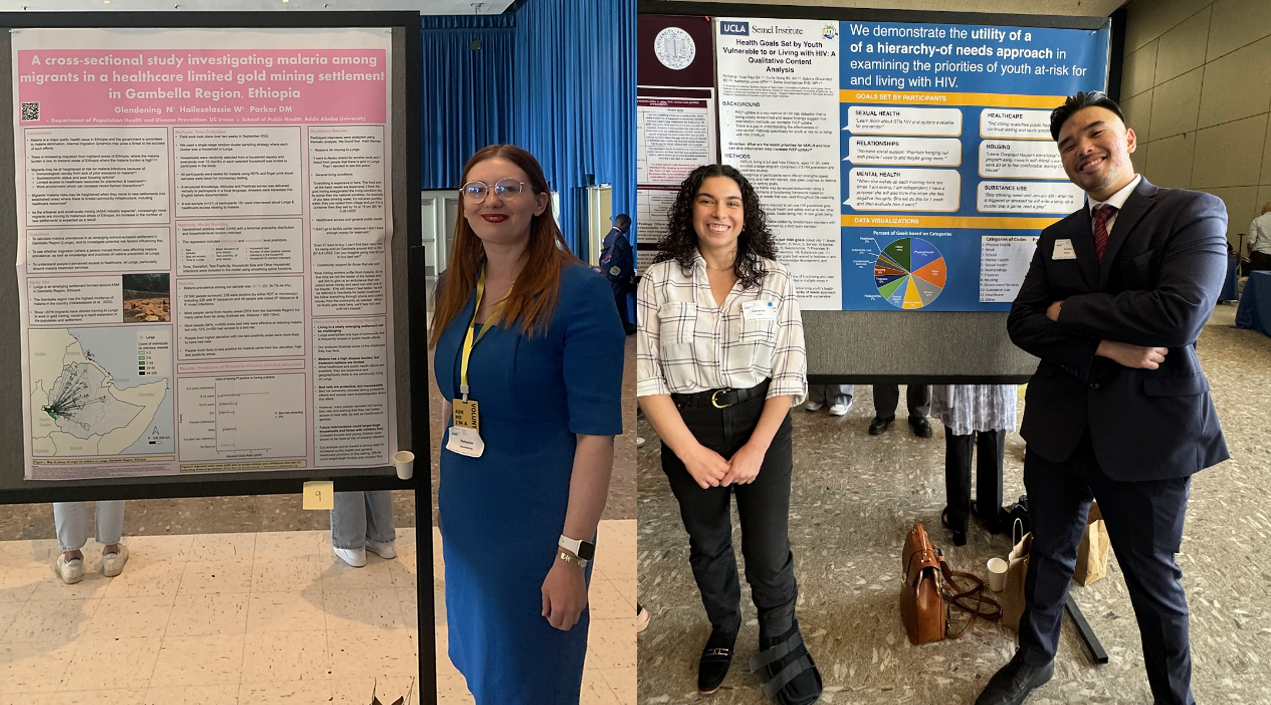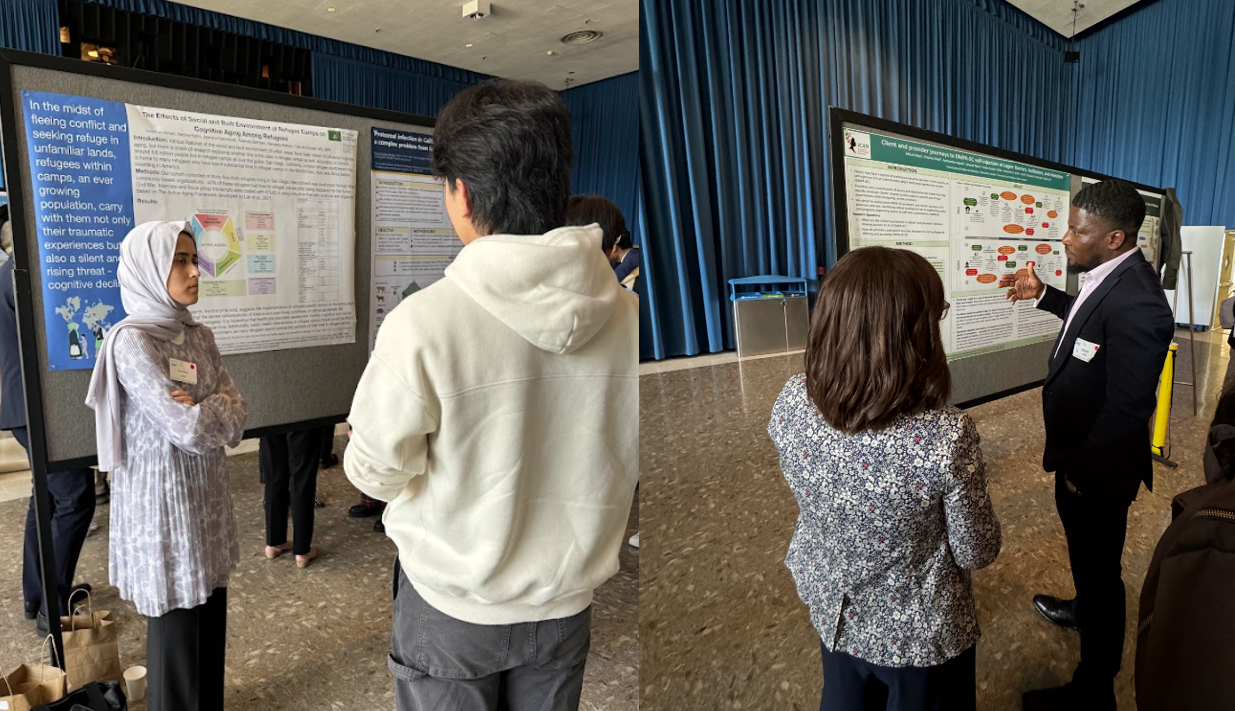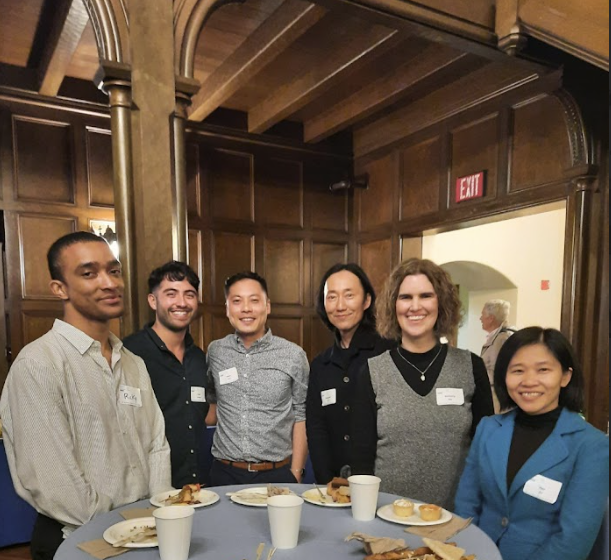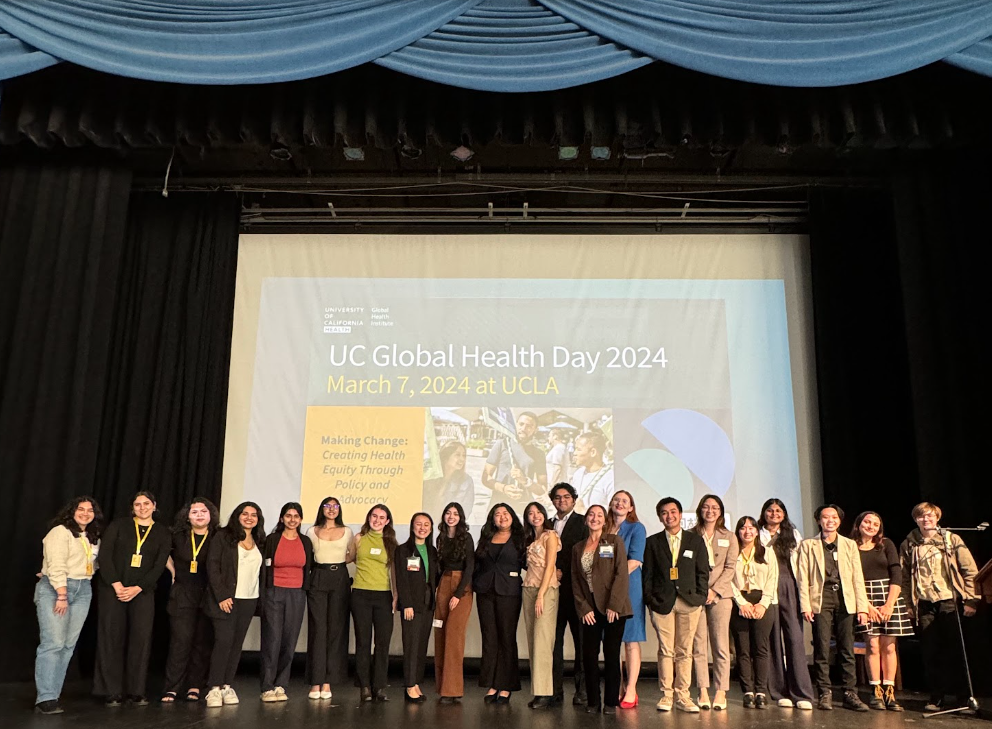
On Wednesday, March 7th, nearly 500 committed health professionals and learners gathered from around California and the world at University of California Los Angeles (UCLA) in-person and dozens of people tuned in online for the 10th UC Global Health Day to hear from two plenary speakers, two lightning presenters, eight panelists, nearly 70 poster presenters, and some inspiring health-focused art performances. We kicked off the day with a pre-recorded welcome message from President Michael V. Drake, who hosted the first UCGHD at UC Irvine when he was Chancellor of UC Irvine. Kimberly Uehisa, MS—the Charles R. Drew University Lead Student Liaison for the UCGHI Student Ambassador Program—also began by acknowledging the Tongva peoples on whose traditional unceded lands we were meeting. Throughout the day, we were inspired and challenged to take our work to the next level through the event theme Making Change: Creating Health Equity through Policy and Advocacy. UCGHI Director, Madhavi Dandu, MD, MPH set the stage for the discussion by expressing the urgency of utilizing our roles as global health professionals for change in the global health landscape of multiple humanitarian crises. Speakers throughout the day showed how we can do that through policy and advocacy.
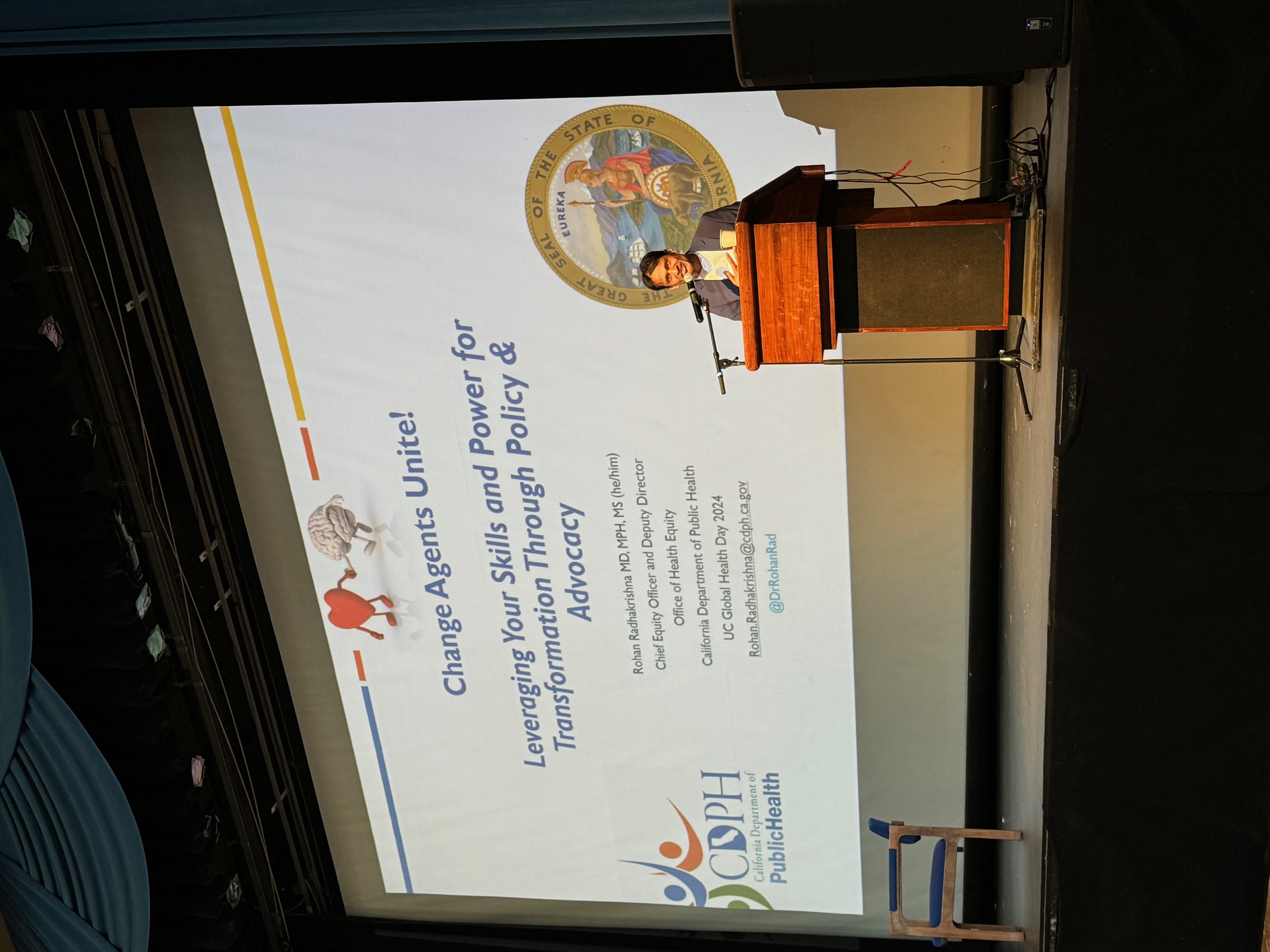
Opening plenary speaker, Rohan Radhakrishna, MD, MPH, MS–Chief Equity Officer and Deputy Director of The Office of Health Equity at the California Department of Public Health (CDPH)–discussed the necessity of health professionals in policy through unifying efforts. As a physician-government official, he believes there is a moral imperative for health professionals to insert themselves into policy. “What’s the point of treating people only to send them back to the conditions that make them ill?” Dr. Radhakrishna quotes from Sir Michael Marmot, formerly of the World Health Organization’s chair of the Commission on Social Determinants of Health (CSDH). “When I watched him speak on the topic, he [Sir Michael Marmot] cried. We should be sad with what's happening, the lack of change in conditions, the growing disparities.” He implored the attendees not to just look at downstream challenges that individuals face, but at structural challenges that only policy change can address. “As health professionals and students, we need to talk about budgets, zoning, housing, development, change laws about land ownership, implement practices to prevent segregation, displacement and gentrification, build coalitions and ultimately change narratives and beliefs about the history of segregation and what it means to have the commodity of housing,” he said. Throughout the session he talked about the mechanisms by which CDPH is doing this (read the profile of Dr. Radhakrishna) showing specifically how his work in healthcare translates directly to policy.
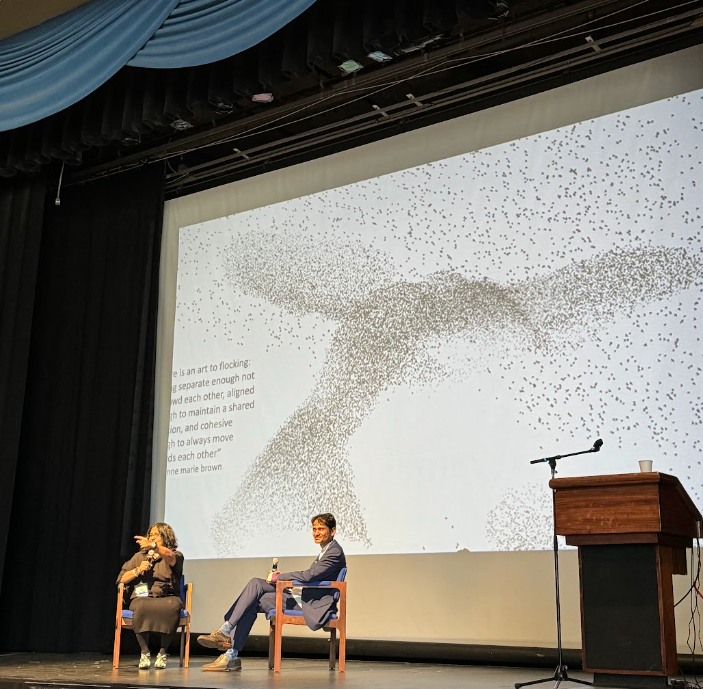
This year’s lightning speakers showcased powerful examples of the kinds of advocacy and policy work making change in the field in short 15-minute sessions. Alec Calac, member of the Pauma band of Luiseño tribe, MD/PhD student from UC San Diego, and HEAL Advisory Council member, spoke about how Indigenous perspectives and approaches to big data and emerging technologies can transform what data can and should do for communities. He believes researchers can look at data not just as an asset or resource for science, but as a relation. It’s an extension of ourselves and in thinking about how Indigenous peoples have been responsible stewards of our languages, our cultures, our traditions, since time immemorial,” he said. “Shouldn't we also be responsible stewards of the data that comes from our communities?” And Carrie Waterman, PhD and Cheryl A. Branch from Food Justice and Health Equity Initiative showed how a pilot food hub program brought community activists and University researchers from around the world together in monthly online forums to discuss health equity and food justice for communities of color to address the intersection of the first three Sustainable Development Goals (SDGs)–no poverty, zero hunger, and good health and well-being. “We look at different historical threats and opportunities to viable food systems and historical distribution of black farmers within the United States, and cover UN SDGs” says Dr. Waterman. Through the course developed from the hub, UC Davis students completed internships and translated what they were learning to policy-making by going to the capitol to put papers in front of Governor Newsom to show what food equity looks like.
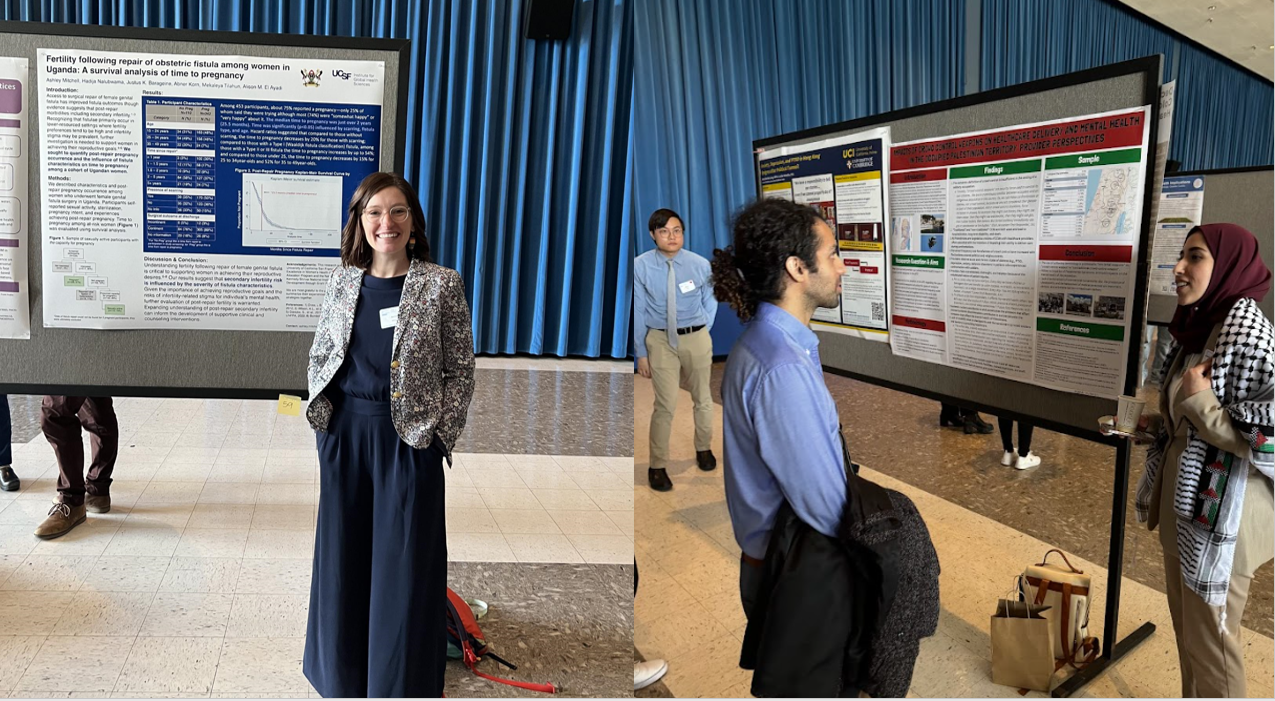
Later in the day, we heard from two panel discussions focusing on pressing justice issues in the current global health landscape: environmental justice and reproductive health and abortion rights.
During the environmental justice panel, moderator Samantha Ying, PhD, Co-Director of the UCGHI Center for Planetary Health and UC Riverside led a panel discussion about the power of advocacy to address environmental justice issues with historically marginalized communities. Community organizer, Jessica Keetso spoke of the work her organization, Tó Nizhóní Ání (TNA), which means “Sacred Water Speaks,” is doing in Black Mesa, Arizona on behalf of the Navajo nation to address the misuse of precious groundwater that has been affected by the largest strip mining operation in the U.S., Peabody Coal Company. Their work aims for the reclamation of coal mined land and decommissioning and clean-up operations of these power plants. Carlos Martinez, PhD, an assistant professor of Latin American and Latino studies at UC Santa Cruz, discussed how his research, in partnership with local organizations, looks at how environmental structural violence intersects with other social marginalizations. For example, one of his studies looks at how homeless deportees and asylum seekers are stuck in the Tijuana River Canal where they have been exposed to pollutants from factory production, which shows how the system that created the pollution is interconnected with the circumstances for these people to experience homelessness. And, Amber Roegner, DVM, PhD, from Loyola University-Chicago, spoke about her research, a transdisciplinary collaboration with on-the-ground experts, on how harmful algal blooms in freshwater sources impacts livelihood of local communities around the world, in Kenya, Guatemala, and Easter Oregon. The particularly impactful part of her research is how the community is involved from citizen scientists, town councils, and local healthcare professionals.
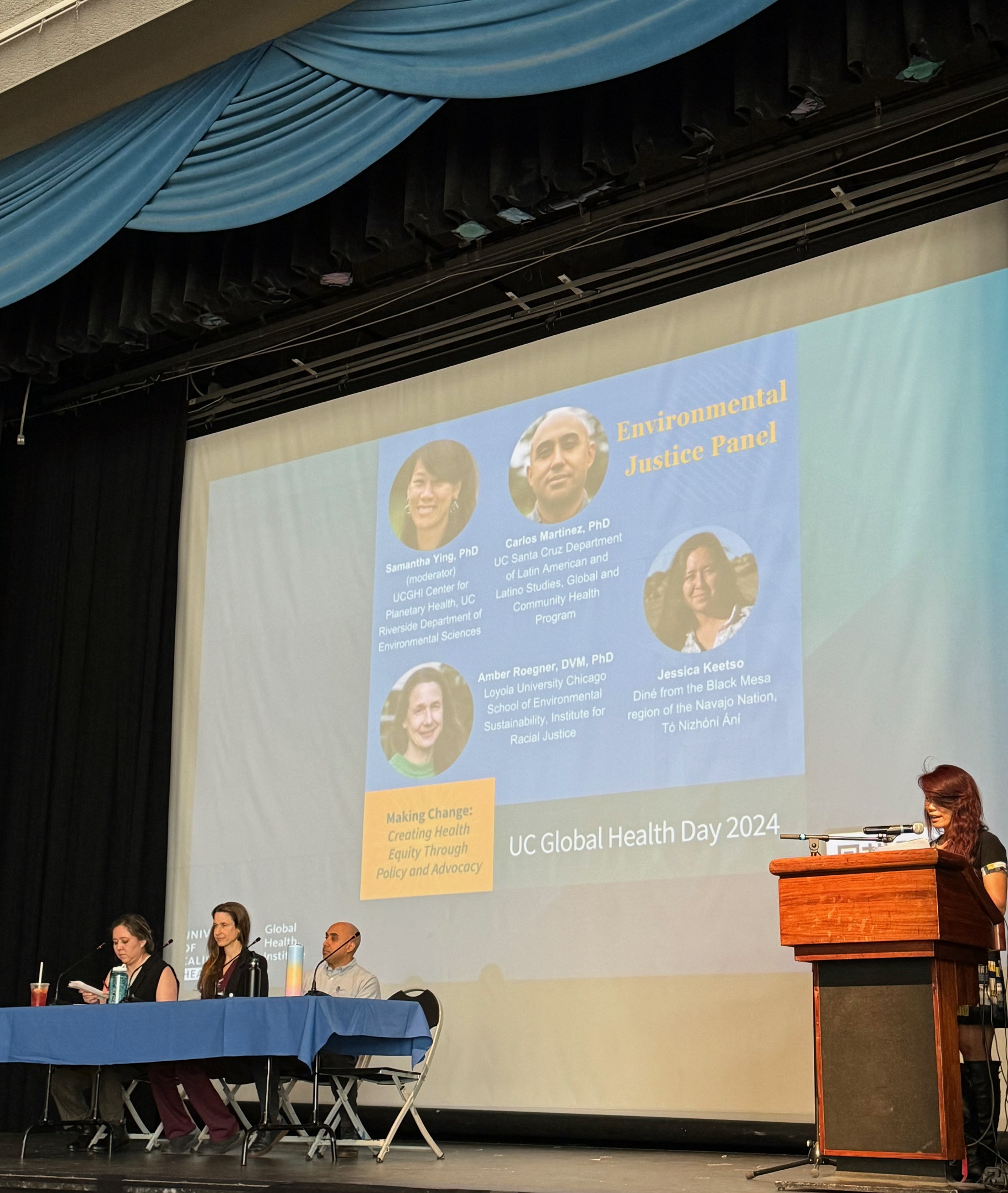
The reproductive health and abortion rights panel, moderated by Lara Stemple, JD from UCLA School of Law and co-Vice Chair of the UCGHI Executive Committee began with some eye-opening statistics from the UN Population Division on birthing people of reproductive age. “Among this population,” she says, “200 million women wish to avoid pregnancy but cannot access modern contraception; 45 million received inadequate prenatal care; and there are 25 million unsafe abortions taking place each year.” Putting this against the backdrop of recent rollbacks to reproductive rights in the U.S., she established the urgency of global reproductive advocacy. Luseshelo Fanny Simwinga, CNM, MS(c), a nurse-midwife from Malawi working with UC San Francisco’s Global Action in Nursing (GAIN) began the panel discussing the shortage of 10 million healthcare workers in low- and middle-income countries (LMICs), like Malawi where half of that shortage is of nurse-midwives. “Nurses and midwives are the primary providers of obstetric and neonatal care, and may be the only provider someone sees during the entirety of their pregnancy in Malawi,” she says. Her work with GAIN, a nurse-led project, is strengthening the nurse-midwife workforce through intensive training, bedside mentorships, providing scholarships, and giving compensation for training. Monika Y. Langarica, JD from UCLA Center for Immigration Law and Policy, focuses on fighting for reproductive justice for immigrants in confinement, and told the harrowing story of a client who was forced to give birth in a border patrol facility during routine processing “while holding on to the edges of the garbage can for support,” she said. She was eventually taken to a medical care facility where she spent a night yet was then transferred back to the detention facility where she was forced to care for her newborn in a cell. Langarica discussed how she and her colleagues continue to advocate not just for clients like this woman, but also to fight to change the system to prevent this from happening again. And finally, Ushma Upadhyay, PhD, MPH, co-Director of the UCGHI Center for Gender and Health Justice (CGHJ) and from UCSF Department of Obstetrics, Gynecology, & Reproductive Sciences discussed the consequences of abortion access in the U.S. after Roe v. Wade was overturned in the Dobbs decision in 2022. She notes that an already harrowing situation for pregnant people pre-Dobbs has turned worse where nearly half the country can’t receive proper abortion care. However, Dr. Upadhyay notes, “We’re all about empowerment, so I can’t stop before talking about some of the proactive measures that are taking place.” She goes on to discuss how some states are funding care for out-of-state patients, nurse practitioner training for nurse-midwives, and shield laws for healthcare professionals who provide virtual abortion care to out-of-state patients.
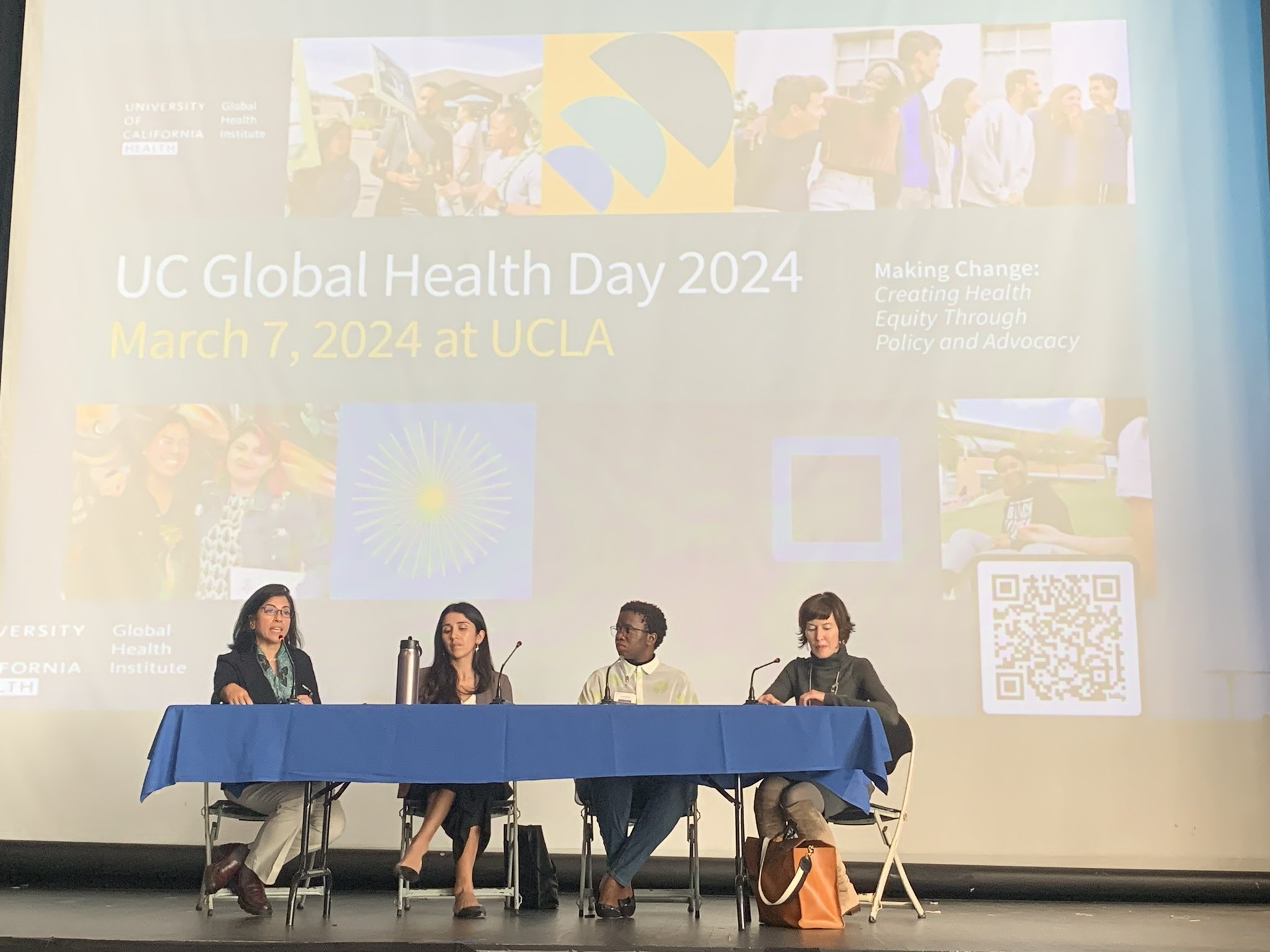
Finally, the day capped off with an inspirational message of advocacy from closing plenary speaker, Frank Mugisha, Executive Director of Sexual Minorities Uganda (SMUG). Mugisha has worked for decades advocating on the behalf of the lesbian, gay, bisexual, transgender, queer, and other gender and sexual non-confirming people’s (LGBTQ+) rights as he saw rights for his community decline significantly throughout his life. Uganda is one of 33 (of a total of 55) countries in Africa that criminalizes homosexuality. Throughout recent years, rights for LGBTQ+ people have declined significantly, yet people like Mugisha continue to fight to show the importance of global solidarity that acknowledges that LGBTQ rights are human rights despite the threat to his safety. He has found that many health organizations tend to shy away from the topic of LGBTQ+ rights because it is a hard topic. “I think we shouldn’t shy away from difficult topics,” he says in conclusion. “We should turn up and speak up where there are inequalities and we should look at this as a cross-cutting movement.”
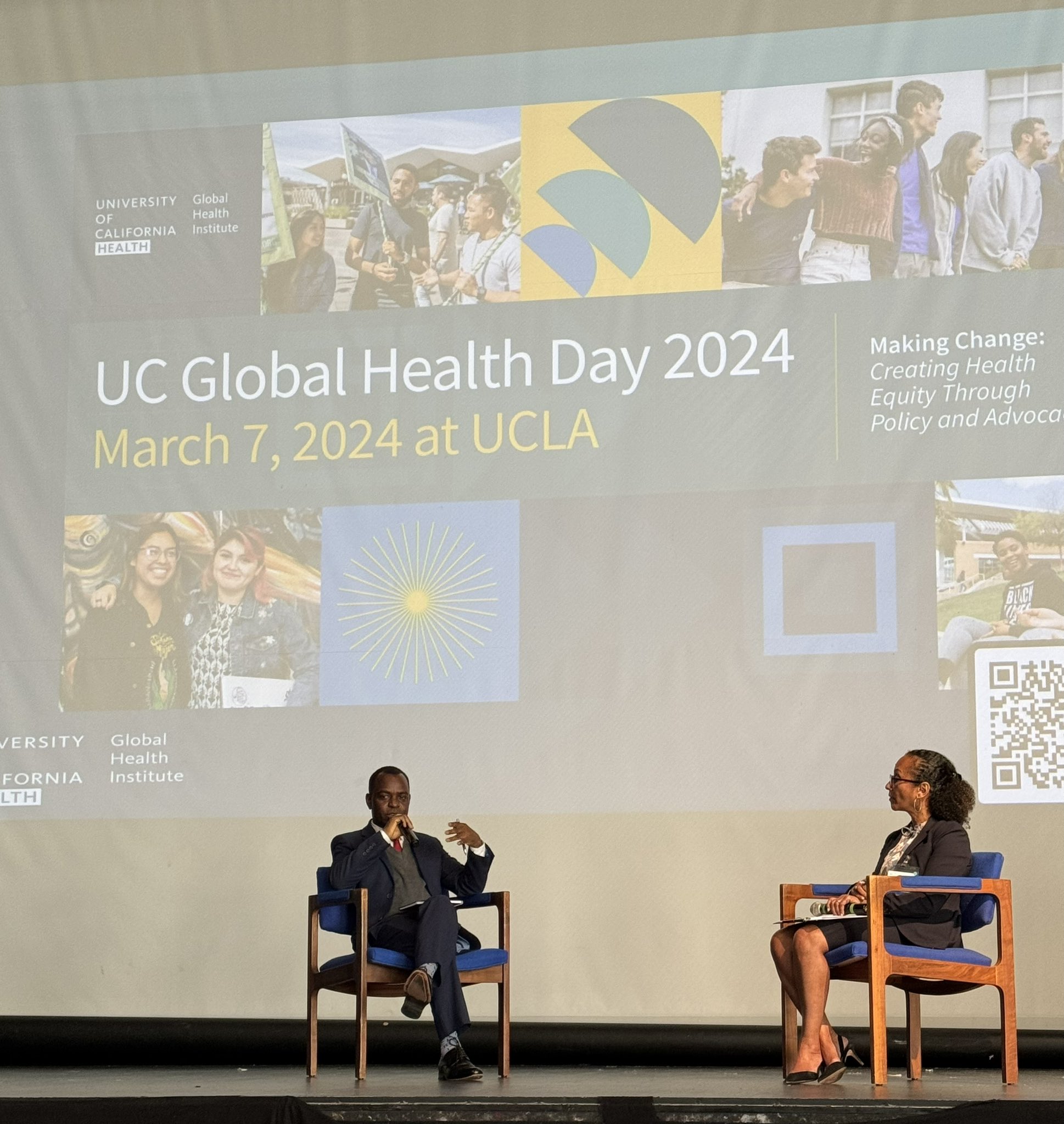
Capping off the day, UCGHI Associate Director, Ndola Prata, MD, MS, echoed the sentiments of Dr. Dandu’s from the welcome acknowledging the public health consequences of the humanitarian crises we see across the world today including from war, natural disasters, and an escalating climate crisis. As such, she left the audience with a call to action: “Let's continue to work together united as public health professionals to improve public health equity through policy and advocacy.”
The conference presentations underscored the importance of policy and advocacy in creating meaningful and sustainable change. As we reflect on the insights gained and connections made, let us commit ourselves to action as learners and global health professionals. Whether through translating global health research, grassroots advocacy, policy reform, or community engagement, each of us has a role to play in advancing health equity to ensure a healthier, more just future for all. This is an ongoing conversation that we will continue to have as we continue to grow, learn, and engage in policy and advocacy now and in the future.
